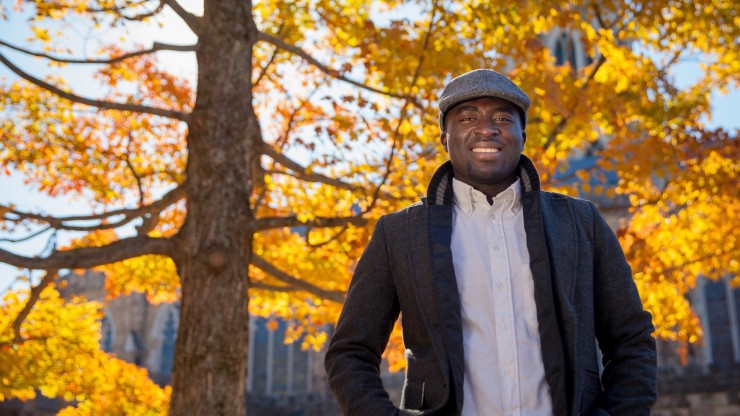"At Sewanee I learned more about myself than I’d ever intended to."

Clinical Research, Dancing, and the Artful Brain
Fridien Tchoukoua
Clinical Research Coordinator
Massachusetts General Hospital
Major: Biochemistry
Just a few weeks after graduation, Fridien Tchoukoua, C’17, started a job at Massachusetts General Hospital. Working as a clinical research coordinator, Fridien is part of the Human Connectome Project, a nationwide brain research study.
“We are mapping the brain and tracking how it changes with age,” Fridien says. “My job is to recruit participants and document clinical studies. I also work as an MRI technician to conduct brain scans.”
Because it’s a nationwide study, the Massachusetts General Hospital team takes part in multi-site conference calls to make sure everyone involved in the project is on the same page. From genetic testing to behavioral assessments, the research of the Human Connectome Project is helping Fridien live out a passion.
“At Sewanee, I did a lot of wet lab research with microscopes and biological matter,” he says. “Now that I’m at the hospital, I’m able to conduct clinical research with people. I’m so fascinated with how the brain works.”
Fridien majored in biochemistry and plans to be a physician one day. When he chose Sewanee, he knew it would be a perfect fit because of his passion for both science and performing arts.
“I helped generate the idea of a dance minor at Sewanee,” Fridien explained. “With faculty and the registrar's office, we were able to create an actual minor.”
Dancing is an integral part of Fridien’s life. Along with making connections in the brain in a clinical sense, he is able to merge his love of art and science to find connections there as well. Many days after work, he leaves a clinical setting to join his dance company for rehearsal in Boston. One day, he wants to be known as the dancing doctor.
“My career and my hobby are similar in many ways,” Fridien says. “Dance helped me figure out ways I could one day be a successful physician. Practice makes you better, and that same mindset carries over into medicine. Dance is technique, medicine is technique. When you mess up, you don’t stop. You embrace the mistake, learn from it, and move on.”

